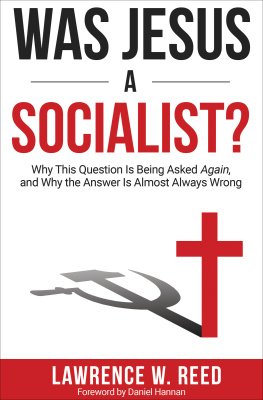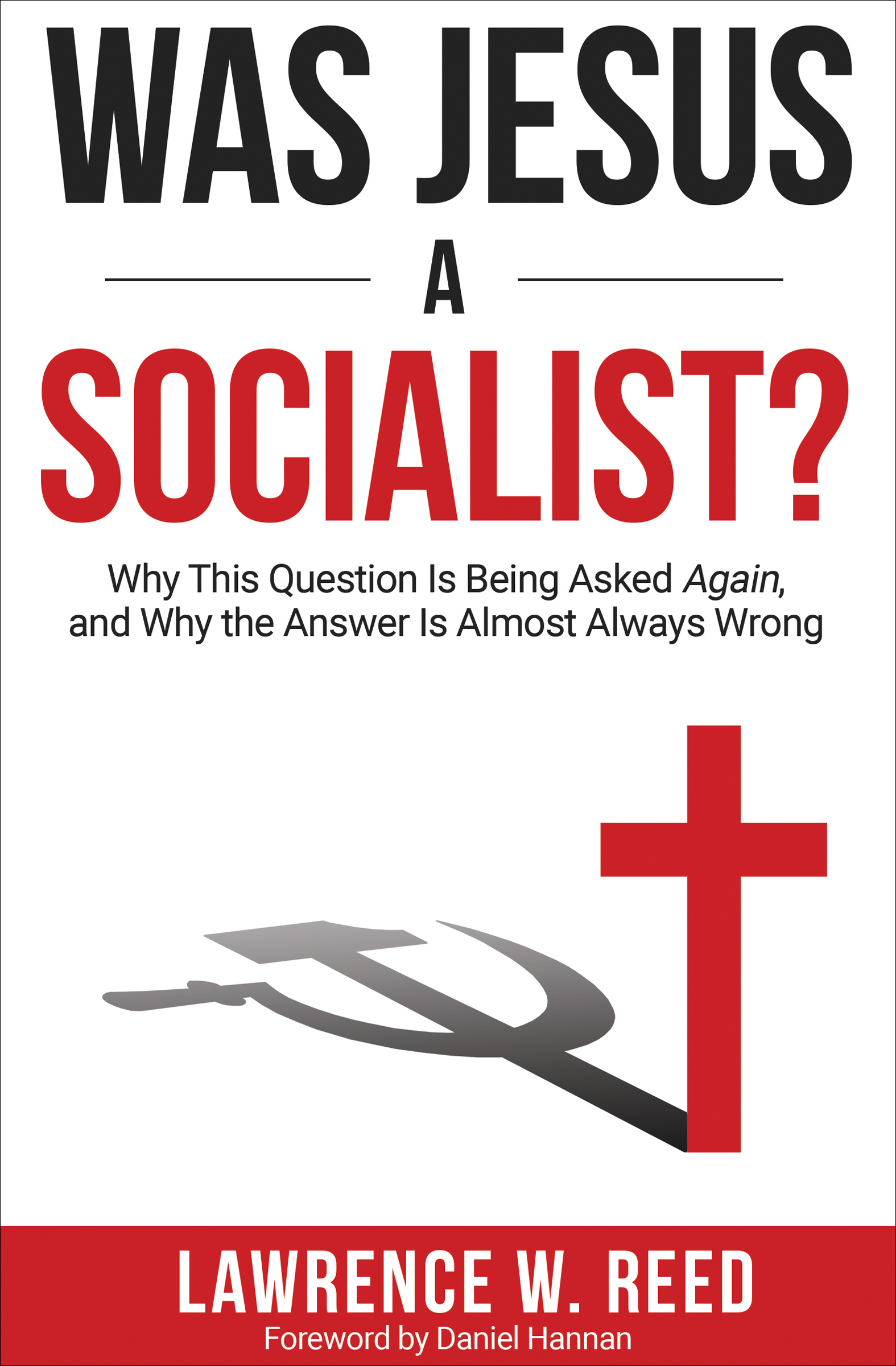Lawrence W. Reed - Was Jesus a Socialist?: Why This Question Is Being Asked Again, and Why the Answer Is Almost Always Wrong
Here you can read online Lawrence W. Reed - Was Jesus a Socialist?: Why This Question Is Being Asked Again, and Why the Answer Is Almost Always Wrong full text of the book (entire story) in english for free. Download pdf and epub, get meaning, cover and reviews about this ebook. year: 2020, publisher: Intercollegiate Studies Institute, genre: Politics. Description of the work, (preface) as well as reviews are available. Best literature library LitArk.com created for fans of good reading and offers a wide selection of genres:
Romance novel
Science fiction
Adventure
Detective
Science
History
Home and family
Prose
Art
Politics
Computer
Non-fiction
Religion
Business
Children
Humor
Choose a favorite category and find really read worthwhile books. Enjoy immersion in the world of imagination, feel the emotions of the characters or learn something new for yourself, make an fascinating discovery.
- Book:Was Jesus a Socialist?: Why This Question Is Being Asked Again, and Why the Answer Is Almost Always Wrong
- Author:
- Publisher:Intercollegiate Studies Institute
- Genre:
- Year:2020
- Rating:4 / 5
- Favourites:Add to favourites
- Your mark:
Was Jesus a Socialist?: Why This Question Is Being Asked Again, and Why the Answer Is Almost Always Wrong: summary, description and annotation
We offer to read an annotation, description, summary or preface (depends on what the author of the book "Was Jesus a Socialist?: Why This Question Is Being Asked Again, and Why the Answer Is Almost Always Wrong" wrote himself). If you haven't found the necessary information about the book — write in the comments, we will try to find it.
Now he is doing something about it.
Reed demolishes the claim that Jesus was a socialist. Jesus called on earthly governments to redistribute wealth? Or centrally plan the economy? Or even impose a welfare state?
Hardly.
Point by point, Reed answers the claims of socialists and progressives who try to enlist Jesus in their causes. As he reveals, nothing in the New Testament supports their contentions.
Was Jesus a Socialist? could not be more timely. Socialism has made a shocking comeback in America. Poll after poll shows that young Americans have a positive image of socialism. In fact, more than half say they would rather live in a socialist country than in a capitalist one.
And as socialism has come back into vogue, more and more of its advocates have tried to convince us that Jesus was a socialist.
This rhetoric has had an impact. According to a 2016 poll by the Barna Group, Americans think socialism aligns better with Jesuss teachings than capitalism does. When respondents were asked which of that years presidential candidates aligned closest to Jesuss teachings, a self-proclaimed democratic socialist came out on top. Sure enough, the same candidate earned more primary votes from under-thirty voters than did the eventual Democratic and Republican nominees combined.
And in a 2019 survey, more than seventy percent of millennials said they were likely to vote for a socialist.
Was Jesus a Socialist? expands on the immensely popular video of the same name that Reed recorded for Prager University in July 2019. That video has attracted more than four million views online.
Ultimately, Reed shows the foolishness of trying to enlist Jesus in any political cause today. He writes: While I dont believe it is valid to claim that Jesus was a socialist, I also dont think it is valid to argue that he was a capitalist. Neither was he a Republican or a Democrat. These are modern-day terms, and to apply any of them to Jesus is to limit him to but a fraction of who he was and what he taught.
Lawrence W. Reed: author's other books
Who wrote Was Jesus a Socialist?: Why This Question Is Being Asked Again, and Why the Answer Is Almost Always Wrong? Find out the surname, the name of the author of the book and a list of all author's works by series.










